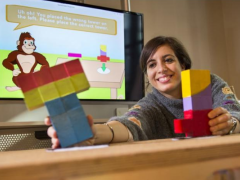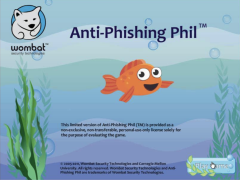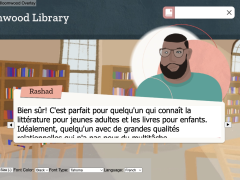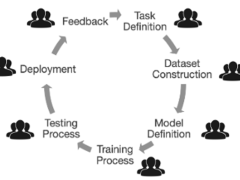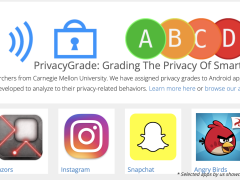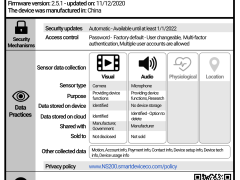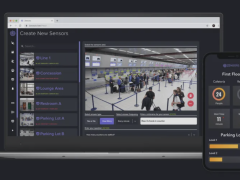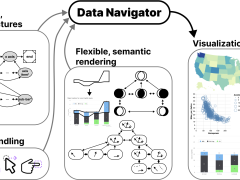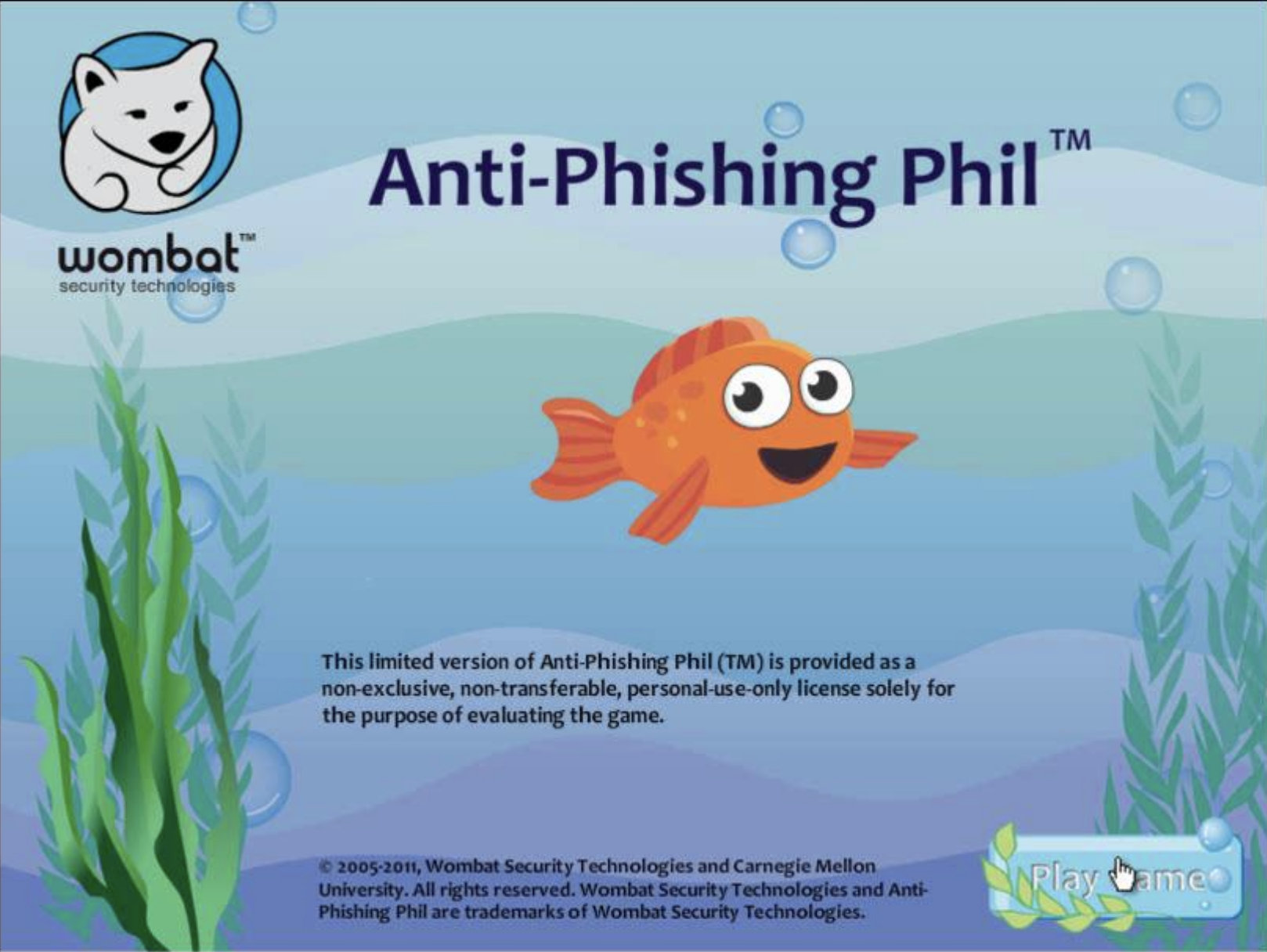Protecting Millions of People from Phishing Scams
Impact: We introduced new phishing education methods
Phishing attacks look like they’re coming from a trusted source (your bank, for example), but these fake messages are designed to trick recipients into doing dangerous things, like sharing their passwords with attackers or installing malware.
Since the majority of data breaches attack people and not the infrastructure, we developed proven ways to teach phishing awareness and safety through innovative cybersecurity games, simulated attacks, and warnings.
We studied the social aspects of phishing attacks and protected millions of people through education and training.
This work led to...
- New educational methods. Our team pioneered cybersecurity games and simulated phishing attacks to teach employees about phishing attacks, which are now an industry best practice.
- Effective warnings that resonate when someone is about to click. We studied different kinds of anti-phishing warnings to identify what messaging works in the moment. The anti-phishing security warnings now seen in today’s web browsers are based on our research.
- A landing page developed in partnership with the Anti-Phishing Working Group. This educational landing page that replaces fake phishing web sites after they are taken down has info about how to stay safe from phishing and has been seen by well over 200K people around the world.
- Co-founding a spin-off company. In 2008, Wombat Security Technologies commercialized some of this research. Wombat had over 200 employees, over 1000 customers, and protected millions of people around the world before being acquired by Proofpoint in 2018 for $225M. Wombat’s products are now offered by Proofpoint.
- New algorithms for detecting phishing web sites. Our work on algorithmic detection is the most highly cited work in this space and it has influenced how many companies detect fake sites.
Supported by: The National Science Foundation, Portugal Telecom, Army Research Office
Timing: 2004 - 2008
Related work: See https://cups.cs.cmu.edu/trust.php for more information.
Researchers: Jason Hong, Lorrie Cranor, and teams
Research Area: Usable Privacy and Security
Looking at Additional HCII Impacts...
NoRILLA Interactive Mixed-Reality Science for Kids
Our novel, mixed-reality intelligent science stations bridge the physical and virtual worlds. Millions of children and families across the US are learning more science and improving their critical thinking skills after predicting, observing and explaining experiments with our patented system at their schools and museums.
Protecting Millions of People from Phishing Scams
We studied the social aspects of phishing attacks and protected millions of people through education and training. This work led to new educational methods to raise awareness, effective anti-phishing warnings, and algorithmic detection of phishing attacks.
Tiramisu Supported Public Transit Riders and Research
Years before the public transit buses in Pittsburgh had GPS location trackers, we were exploring how riders could be the co-creators of mobile transit info. During this 10 year research project, this app made it easier for travelers with disabilities to engage in opportunistic travel and benefited 75,000 unique transit riders.
Developing Novel Interfaces for Livestreamed Gaming
Livestream gaming viewers are limited in the ways they can participate, but this team found that designing a better experience for livestreams has a variety of benefits for audiences worldwide.
Creating Accessible Visualizations with Chartability
The Chartabilty framework has empowered people around the world to recognize the parts of a data visualization that produce barriers for people with disabilities. It has contributed to dozens of design languages, visualization guides, accessibility curriculum at universities, and the data journalism seen on news websites.
TapSense Improved Touch Detection on Millions of Smartphones
We trained smartphones to reliably detect four different touchscreen inputs – for example, a tap by a finger pad as compared to a knuckle – which created opportunities for new interactions and features.
Supporting Developers So They Can Build More Responsible AI
We conducted the first studies with industry practitioners to understand the challenges they face when building responsible AI systems. Our tools and methods are now supporting developers around the world.
Grading Your Smartphone Apps on Their Privacy Practices
We created a model that analyzed over 1 million smartphone apps on their privacy and data collection practices, and then assigned them a public-facing privacy grade. This easy-to-follow grading system raised public awareness and led to improved privacy practices from several app developers.
Improved Math Mastery with the Decimal Point Game
We explored the learning analytics behind our digital learning game to see how student learning responds to curriculum changes to the game. Over the past 10 years, over 1,500 students have benefited from the Decimal Point game and curriculum materials.
Understanding the Impacts of AI in Child Welfare
We conducted the first field studies to understand how child welfare workers incorporate AI-based recommendations into their decision-making, which had far-reaching policy impacts.
Designing Teacher-AI Collaboration Systems
Hundreds of elementary and middle school students across the US have learned more as a result of our work on real-time, teacher-AI collaboration systems in K-12 classrooms.
Millions Learned More Math with Our AI Tutor
Millions of middle school and high school students across the US have learned more math as a result of our decades of work with AI-based cognitive tutoring systems.
Human-Centered Privacy for the Internet of Things
As more gadgets become “smart” things and the Internet of Things (IoT) expands to tens of billions of connected devices, we want consumers to be aware of what their devices are doing with their personal data.
Zensors Turns Cameras Into Smart Sensors
In one application installed at the Pittsburgh International Airport in 2019, Zensors use existing cameras as powerful general-purpose sensors to provide wait time estimates for the security line, which benefits almost 10M PIT travelers per year.
Accessible Visualization Tooling with Data Navigator
A visual labeled as “an image of a bar chart” or that requires a mouse hover to display important info does not support all users. We created the Data Navigator system to give developers a flexible foundation for designing and building more inclusive data experiences.


